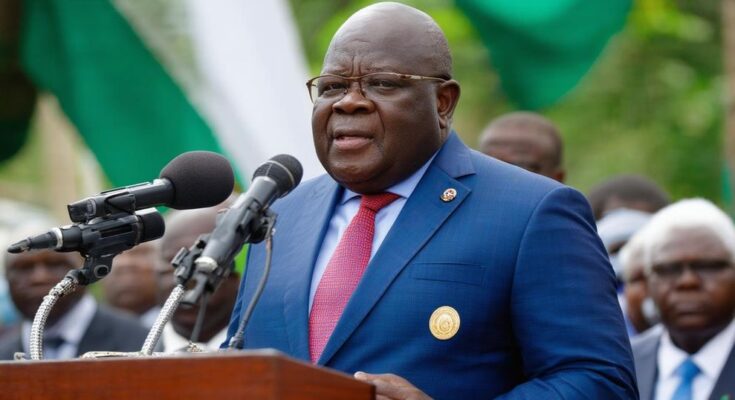President Felix Tshisekedi of the Democratic Republic of Congo plans to create a commission to explore constitutional reforms, including the potential removal of presidential term limits. His move has drawn sharp criticism from opposition leaders who view it as a strategy to extend his presidency and undermine democratic principles. The ongoing debate reflects the nation’s political tensions and the imperative for governance reform.
President Felix Tshisekedi of the Democratic Republic of Congo has unveiled plans to form a commission tasked with examining potential amendments to the national constitution, including the controversial removal of presidential term limits. This initiative, perceived by many as a means to enable his bid for a third term, is met with critical apprehension given the country’s tumultuous political history marked by conflict and unrest. Having assumed the presidency in January following a disputed election in December, Tshisekedi expressed his belief that the existing constitution, ratified via a referendum in 2005, fails to reflect the current socio-political landscape of the country. He stated, “You have heard about a potential change to the constitution, we should not be afraid that this subject will be addressed,” while announcing his intentions to initiate the revision process next year. He further asserted that the decision to amend term limits ought to be determined by the citizens of Congo. Opposition figures, however, view this approach as a calculated maneuver to extend his term and draw parallels with other African leaders who have similarly altered their nations’ constitutions to consolidate power. Claudel Lubaya, an opposition leader, articulated this sentiment by saying, “By changing the rules of the game to stay in power, the current regime is only seeking to prolong its political survival to the detriment of the people’s legitimate aspirations for fair, transparent governance.” Moise Katumbi, a prominent opposition figure and the runner-up in the last election, emphasized, “Congo’s problem is bad governance, not the constitution,” suggesting that the focus should remain on improving governance rather than altering foundational legal frameworks.
The Democratic Republic of Congo has a complex history marked by decades of conflict and political instability. The constitution currently in effect was approved through a referendum in 2005, establishing term limits for the presidency to prevent any leader from consolidating power indefinitely. President Tshisekedi’s proposal to amend this constitution has sparked significant debate within the nation, especially as political leaders recall similar strategies employed by their counterparts in other African nations, which led to prolonged governance crises. The public reaction to these proposed changes is likely to be a crucial factor in determining the future political landscape of the country.
In conclusion, President Tshisekedi’s announcement to explore constitutional reforms, particularly regarding presidential term limits, has ignited a wave of criticism from opposition leaders who believe this tactic aims to extend his presidency. As tensions rise within the political arena, the implications of such reforms could significantly affect the governance and stability of the Democratic Republic of Congo moving forward. The discourse surrounding this issue highlights the ongoing struggle for transparent and accountable leadership in a nation seeking to overcome its troubled past.
Original Source: www.usnews.com




